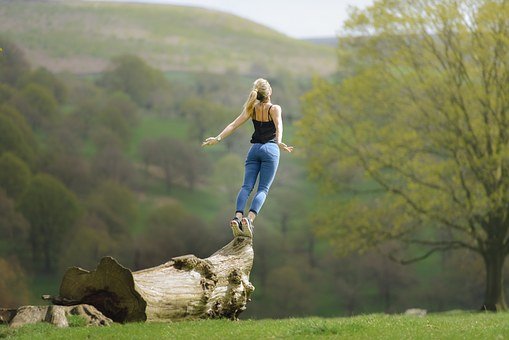After centuries of racism and “embezzlement”, the Western world begins to enhance indigenous knowledge. A collaborative scientific process which enriches human knowledge, while respecting traditional cultural heritage
From the monthly – For much of history, the Western scientific world has exploited their knowledge without giving them credit. But now something is changing. Indigenous peoples interact with nature in a much more direct and constant way than those who live in urban contexts. And always, even before scientific research was formalized, they have developed knowledge systems based on experience, observing physical and ecological processes, investigating the complexity of ecosystems and using their functional components for practical or recreational purposes. The immense wealth of traditional knowledge of these remote communities, handed down over the years through the generations, is universally known as “indigenous knowledge” (indigenous knowledge, Ik) and helped to compose Western science without asking for anything in return. For some years, however, the international scientific community has officially recognized the importance of traditional knowledge in the advancement of scientific culture. The pages of prestigious scientific journals have been invaded by publications on this topic, the last in chronological order review published in November on Frontiers in Ecology and the Environment by the research group of Chris Darimont of the University of Victoria, Canada.
Integrate indigenous knowledge and Western science requires a change of mentality
The topics covered are the most varied: from ecological and climatic changes to the conservation of protected species, from evolution to physiology, from applied ecology to ethnobotany. According to the authors, it is not enough just to involve citizens in the scientific process: Ik stands out from Western science and from citizen science because in addition to direct observation, it includes a broad spectrum of knowledge and spiritual values at the basis of human-environment relationships. A cultural recognition that enhances indigenous knowledge, at least symbolically bringing it back to the place where it was born.
Hidden treasures
«Indigenous knowledge – explains a New Ecology Gianluca Serra, an ecologist specializing in the conservation of natural ecosystems and endangered species – has always been used by Western researchers. During the era of the great explorations and colonialism, the discoveries were made by “parasitizing” the knowledge of the natives who were used as guides, without ever receiving adequate recognition ». In the area of ecology in particular, the researcher explains, indigenous knowledge includes local ecological knowledge (Lek) and the traditional ecological knowledge (Tek). «The first is acquired by the single individual through direct experience and is matured for example by fishermen, hunters or gatherers during the interaction with nature. The second is a more collective heritage, with a wider temporal dimension, handed down vertically from generation to generation and also characterized by myths, stories and legends ».
Change of pace
An openness to local communities also derives from the paradigm shift that is affecting the entire area of nature protection. Indeed, indigenous peoples are reaffirming their rights to manage land, wildlife and natural resources. Rights reinforced by legal and political contexts at national and international level, such as the Cop26 in Glasgow, where the role of indigenous people was recognized in a special mention of the final agreement. This is also demonstrated by the conservation programs, which have abandoned the “exclusionary” approach, aimed at limiting human access to specific areas, to adopt a more participatory one, community based. «Until a few years ago it was different – underlines Gianluca Serra – but now there is a widespread awareness that the indigenous people live in the areas of greatest interest and that they must be involved in the management of the projects. From mere Sherpa guides and companions they have become the main players in the investigations on the territories ».
Time resource
The operational difficulties of carrying out a research integrating the “traditional” scientific approach with that of indigenous knowledge are considerable. Serra is well aware of this, since 2000 he has followed for ten years projects for the protection of the Northern Bald Ibis (Geronticus eremita) in Syria, discovering seven live specimens thanks to the testimonies of the last nomadic Bedouin shepherds, denying the deep-rooted belief that the species had been locally extinct since the 1930s. «Due to the complexity of the work to be done, there would be a need for biologists, ethnographers, sociologists and psychologists. Working with indigenous knowledge is a multidisciplinary strategy, low tech And low economicundemanding from an economic and technological point of view, but definitely time intensive – says Serra – We need to invest a lot of time in the study areas, win the trust of the inhabitants, have a network of useful contacts and really get to know the local culture, also learning its language. It is not enough to make expeditions of a few months thinking that you have the best knowledge on the subject ». The other great difficulty of the approach lies in maintaining scientific rigor. “It is crucial to be able to translate the heritage of indigenous knowledge into something that can be scientifically used – continues the expert – Everything is in the method: you have to build a unique and replicable one”. In any case, it is good to use some precautions, especially in conditions of poverty, where someone could see a better life expectancy in the advent of foreign researchers. “Gods can be made blind testwithout directly explaining the target of the research – concludes the researcher – to discover possible bluffers ».
Ik and Western science share common characteristics and can offer complementary conceptual foundations. Integrating them requires a change of mentality on the part of scientists, who must recognize indigenous peoples the right to self-determination and independent initiative in projects. With an adequate collaborative process, due respect and full recognition of merit, however, both will be able to continue to make fundamental original contributions to our knowledge.
Listen to the audio of the article
spreaker.com/user/12375461/la-scienza-dellesexperience
Indigenous peoples, the discovery of the science of experience – The New Ecology

